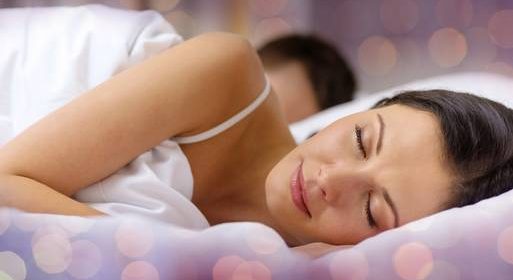10 tips for a good night's sleep

If you’re not sleeping well and struggling to get seven to eight hours a night, you need to look at your ‘sleep hygiene’. GP Dr Doireann O’Leary gives us her top tips.
1 Cut back on caffeine…
If you’re not sleeping well, cut back or eliminate caffeine.
This means tea, coffee, fizzy drinks, energy drinks etc. Caffeinated drinks stimulate us and disrupt our sleep. They also act as diuretics, makes us go to the toilet and therefore cause us to wake up to go to the loo. Ideally we need to steer clear of anything caffeinated from 12 noon. Switch to decaf once it hits midday.
2 Kick the habit…
There are many reasons to kick the habit and poor sleep is one of
them. The nicotine acts as a stimulant and very much disrupts sleep.
3 No more nightcaps…
Having a nightcap or a glass of wine with dinner may help you nod off, but it won’t result in restful, restorative sleep. Once the effect wears off you’ll wake up and feel dehydrated.
4 Check the temperature…
In order to sleep well, body temperature needs to be optimum. The
room should be cool and well ventilated. Body temperature rises overnight, so it’s important the room is kept cool.
5 Have a bedtime routine…
Having a bedtime and wake-time that you stick to is proven to help
you sleep better. If your favourite show is on after your bedtime, watch it on catch up. Weekends are often disruptive and result in sleep inertia so sticking to your routine as much as possible is best.
6 Stay in the dark…
The room needs to be dark and remain dark overnight. We need darkness to stimulate our sleep hormone “melatonin”. Blackout blinds can help, but eye masks help too.
7 Turn it off…
Ideally our beds are used for sleep only. But if you must look at
your laptop or phone in bed coming up to bedtime, switch the screen settings to night mode; the warmer colour on screens during night mode poses less of an insult to our ideal night-time physiology.
8 Keep it quiet…
It’s important your sleep environment is peaceful and quiet. Sometimes it’s impossible to control outside influences to your sleep environment, but using ear plugs can help.
9 Manage your stress…
Stress is a huge reason for poor sleep. Managing stressors throughout
the day by maintaining healthy habits like exercising, eating well, and taking supplements like Zenflore which helps reduce stress. Furthermore, don’t schedule potentially stressful phone calls or check emails close to bedtime.
10 Get some fresh air…
Getting out under the sky at some point during the day can help
your melatonin production at night time. It’s tricky this time of year to see actual daylight, but maybe ask a colleague to go for a walk at lunch hour with you.
Source: Read Full Article